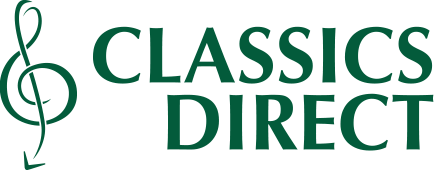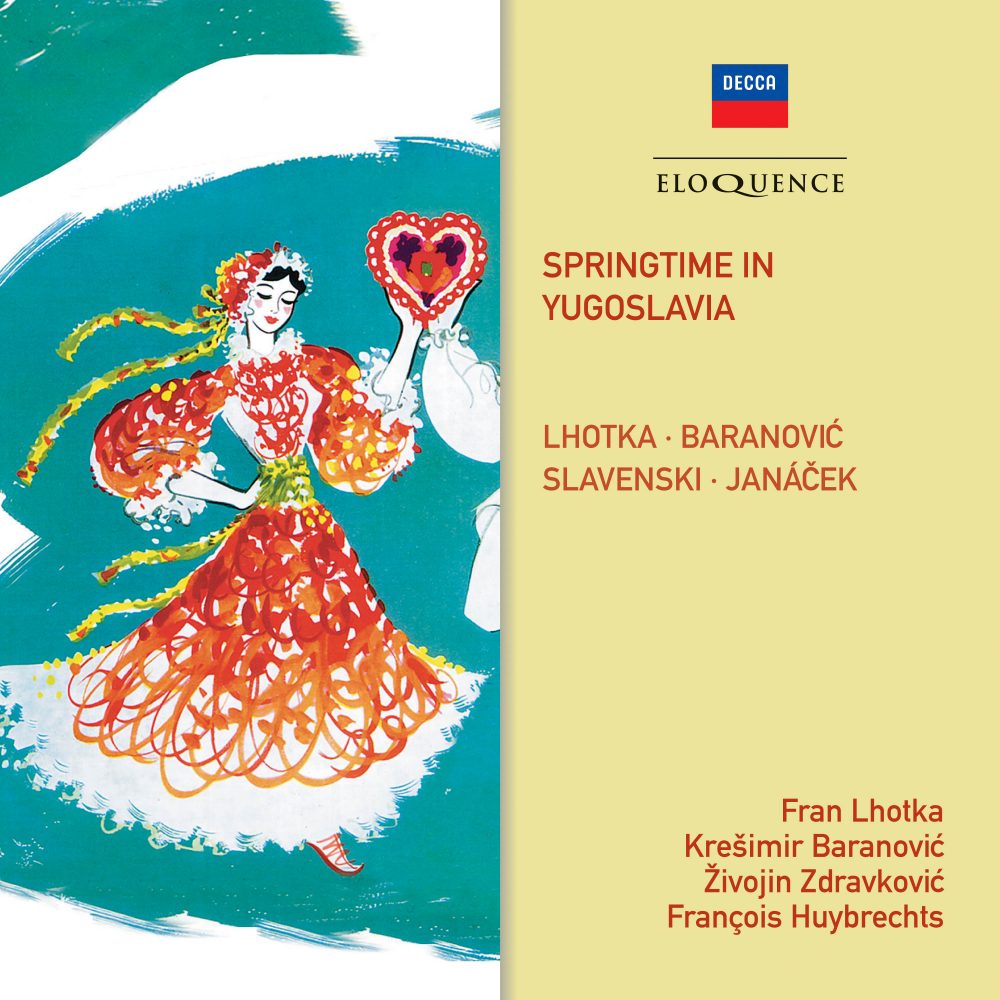Three Decca albums issued complete, including a first release on CD for the ‘Simfonija Orijenta’, a monument of Yugoslavian musical modernism and François Huybrechts’s poetic ‘Taras Bulba’ from his Janáček disc.
This release forms an important appendix to the Eloquence reissues of the seven Russian opera recordings made by Decca with the company of the Belgrade Opera in 1955. Two further orchestral albums were recorded at the time, featuring three of the most significant Yugoslav composers of the day. The first of them features brightly coloured, picture-postcard suites from two folk-inspired ballets, ‘The Gingerbread Heart’ by Krešimir Baranović and ‘The Devil in the Village’ by Fran Lhotka. They were conducted with idiomatic élan by Baranović himself who was then the chief conductor of the Zagreb Opera and director of several of the Belgrade opera recordings (he also conducted The Gingerbread Heart’ at the 1951 Edinburgh Festival to great succ’ess).
Several vocal soloists from those recordings feature on the ‘Simfonija Orijenta’, an extraordinarily ambitious work that attempts a portrait history in music of the world’s great religions over the course of seven movements and 40 minutes, concluding with a grand Soviet ‘Hymn of Toil’. It was composed by Zagreb-born Josip Štolcer-Slavenski, the first Yugoslav modernist who went further than either Lhotka or Baranović in studying and then deploying folk idiom, to which he added avant-garde techniques that earnt his music a place at some of Europe’s premier new-music festivals in Donaueschingen, Paris and London.
Slavenski’s work has a thrilling angularity and unpredictability as individual in its way as the language of Leoš Janáček whose ‘Taras Bulba’ and ‘Lachian Dances’ featured on the debut album for Decca by the Belgian-born conductor François Huybrechts. A rising maestro during the 1970s, he was a prizewinner of the 1968 Dimitri Mitropoulos International Music competition for Conductors and the 1970 Karajan International Conductors’ Competition but after a series of short-lived appointments with US orchestras, his career fell away, leaving this and the Third Symphony by Nielsen (with the LSO) as his sole commercial recordings of note.
CD 1
FRAN LHOTKA
The Devil in the Village (Davo u selu) – Suite
Orchestra of the National Opera House, Zagreb
Fran Lhotka
KREŠIMIR BARANOVIĆ
The Gingerbread Heart (Licitarsko srce) – Ballet Music
Belgrade Philharmonic Orchestra
Krešimir Baranović
LEOŠ JANÁČEK
Lachian Dances (Lašské tance)
London Philharmonic Orchestra
François Huybrechts
CD 2
JOSIP ŠTOLCER-SLAVENSKI
Simfonija Orijenta ‘Religiofonija’ *
Melanija Bugarinović, mezzo-soprano
Dušan Cvejič, tenor
Dušan Popović, baritone
Žarko Cvejič, bass
Belgrade Philharmonic Chorus & Orchestra
Živojin Zdravković
LEOŠ JANÁČEK
Taras Bulba – Rhapsody for Orchestra *
London Philharmonic Orchestra
François Huybrechts
*FIRST CD RELEASE ON DECCA
Recording Producers: Gerald Severn (Lhotka, Baranović, Štolcer-Slavenski); John Mordler (Janáček)
Recording Engineers: Gerald Severn (Lhotka, Baranović, Štolcer-Slavenski); Kenneth Wilkinson, Tryggvi Tryggvason (Janáček)
Recording Locations: National Theatre, Zagreb, Yugoslavia, March 1955 (Baranović), 1–13 April 1955 (Lhotka, Štolcer-Slavenski); Kingsway Hall, London, UK, 22, 26 and 27 October 1970 (Janáček)
Remastering Engineer: Chris Bernauer
Original Decca LP Releases: LXT 5058 (Lhotka, Baranović); LXT 5057 (Štolcer-Slavenski); SXL 6507 (Janáček)
‘Nowadays many people are suspicious of modern music that is attractive at a first hearing. If you have not reached that degree of sophistication you will enjoy this record.’ Gramophone, July 1955 (Baranović/Lhotka)
‘The recording is splendidly vivid, the orchestral playing assured and vivid, the soloists strong and secure, and the choral singing first-rate.’ Gramophone, July 1955 (Štolcer-Slavenski)
‘We’ll be hearing again, and often, from so promising a youngster as Huybrechts – and meanwhile his Lachian Dances should not be missed.’ High Fidelity, October 1972 (Janáček)




